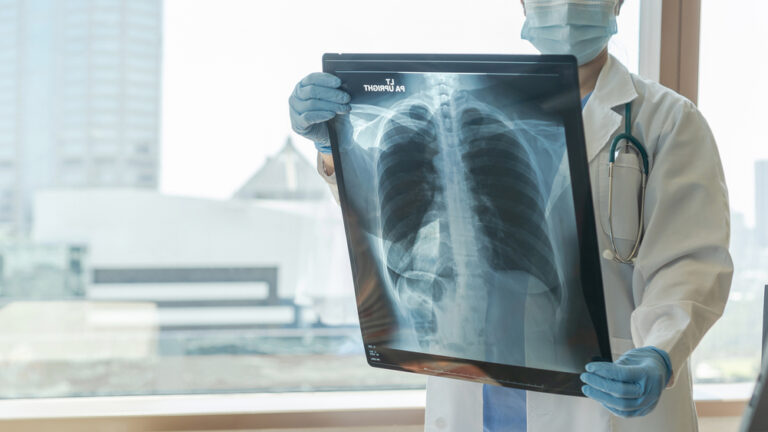D. Nomi
The impact of COVID-19 has been unexpected. This virus has changed our lives forever. A life once mask free, with minimal limitations, is now restrictive. This new norm has pressured authorities worldwide to find ways to contain and limit the spread of the virus, but the cost of containment is yet to be known.
Since COVID-19 inception into Bermuda in March 2020, the island has experienced numerous changes. These changes included shelter-in-place, curfews, closure of the border, businesses, and schools, and reduced capacity for several institutions. The major concern was the impact COVID-19 would have on the health care system. What would happen if the number of cases increased, and healthcare services were subject to immense strain due to the influx and demands of patients?
The American Cancer Society (ACS) said this pandemic has affected the way many people get medical care, especially patients with cancer. In many places affected by the pandemic, elective medical procedures, including cancer screening, were put on hold to conserve medical resources and reduce the risk of spreading COVID-19 in healthcare settings.
According to an article in Sage journals, the impact of the COVID-19 outbreak has been particularly evident for cancer services, with many patients experiencing delays in cancer diagnosis and treatment. We were witness to the tragic story of 28-year-old Bermudian Sherwin Hall, who lost his battle with cancer while residing in the UK, after repeatedly attempting to get care. It appears that while trying to be safe in addressing COVID-19, a proper diagnosis and treatment plan was delayed, and another life was lost.
What does this mean for Bermuda and the cancer patients who are unable to schedule needed appointments? Does this mean a drop in undiagnosed cancer could potentially result in a rise in late-stage cancer diagnoses and death? What effect would this have on Bermuda in the future and those battling the disease? What lifestyle changes can we make to prevent this cancer and live a full healthy life? These are questions to explore.
Even though the small island of Bermuda has been impacted by COVID-19, cancer care providers are doing their best to prevent or limit further delay of much needed services.
Bermuda Cancer and Health Centre, a not-for-profit that provides services such as early detection, radiation treatment, support care, and education for cancer and other diseases, has seen the effects of COVID-19. The Centre was hit financially by the pandemic but made it their goal to ensure safety of their patients and staff while having continuity of patient care.
In 2020, Dr Christopher Fosker, radiation oncologist at the Centre said it was important for the Centre to resume screening services and being able to identify cancer in the earliest stages gives them the best chance of treating it successfully.
The Bermuda Hospitals Board (BHB) Oncology department was also affected by the pandemic. In preparations for the possible entrance of COVID-19, BHB started planning in February 2020. Chief Executive Officer Michael Richmond, MD, then BHB Chief of Staff, said in a press release that early preparations were made such as keeping the hospital board informed, securing Personal Protective Equipment (PPE), making the purchase orders for increased beds and ventilators, and reviewing their pandemic preparedness.
Now, here we are in a situation where cases are ever increasing, hospital beds are more challenging to acquire, and our medical staff and healthcare system are being put under perhaps the greatest strain ever given. Thank goodness that some preparations were made, but it can be challenging in a locale where there is a sole radiation oncologist for an entire country, albeit a role that has a network of supportive collaborators.
Healthcare providers in Bermuda, despite the burden, are attempting to ensure the most vulnerable, such as cancer patients, continue to receive the care needed through this pandemic. Early detection and prevention are important in all their decisions.
Even though this pandemic has created economic disruption and social restrictions that increase the risk of adapting to unhealthy habits, there are lifestyle habits we can adapt to lessen the risk of cancer.
According to the American cancer society (ACS), you can help reduce your risk of cancer by making healthy choices like eating right, staying active, not smoking, and follow the recommend screening guidelines.
In order to not burden our healthcare system in the future with late-stage diagnosis, it may also be beneficial, if not crucial, to be in contact with your healthcare provider to ensure you receive the care and treatment you need. Structure your support network to make sure you can make appointments, even if they are delayed, to get you the best care possible during these difficult times.
Utilize credible online resources to guide your journey while taking advice from your local medical practitioner. ACS website, cancer.org, provides a wealth of information on cancer detection and prevention.
Let’s do all we can to come out of these harrowing times by living well, supporting each other, and practicing safety measures to help our community.

